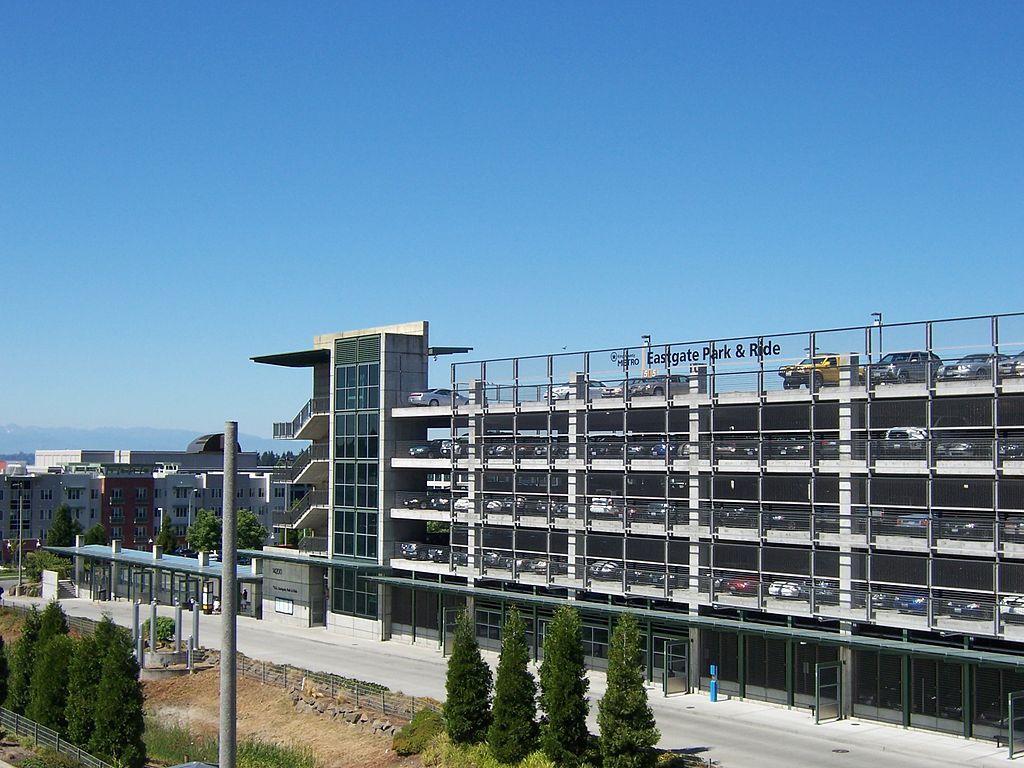
Note: This article was originally a guest post in the Seattle Transit Blog.
In Seattle, many of us are privileged with easy access to great bus service at any time of day. But the regional reality is pretty different for most folks. Until we are able to fund and build out King County Metro’s long-range plan, which will connect many more neighborhoods to frequent, high-capacity transit via a short walk or bike ride, lots of residents have to rely on driving to a Park and Ride as part of their daily trip.
With increased growth and demand in our region, many of these lots are filling up fast, creating crowding on earlier transit trips, and leaving little to no parking for workers without the flexibility in their schedules to race for one of the limited spaces early each morning. Rather than building more parking lots, parking permits can help manage available space at Park and Rides, encourage carpooling, and create reliability for those who need it.
Next Tuesday, July 16, the King County Council Mobility and Environment committee will vote on a parking permit resolution to offer reserved solo driver parking permits for King County Park and Ride facilities. Join TCC and partners on July 16 at 1:30 pm to testify and show your support for smarter parking management.
This Park and Ride resolution is similar to the policy the Sound Transit Board of Directors approved last year; applications for solo driver permits, including discounted permits for ORCA LIFT riders, are now available for Sound Transit Park and Ride facilities in Northgate, Auburn, Puyallup, Edmonds, and Mukilteo.
Why Park and Ride Permits?
Park and Ride lots are convenient transfer areas that make transit more accessible for people who do not live near a bus or light rail route. Until we have a more robust transit network, Park and Rides are one tool to relieve congestion and promote the use of public transportation. All riders and taxpayers pay hidden costs for expensive parking infrastructure, and building more parking will only occupy land that can be used to build housing near high-frequency transit. Parking permits can help manage parking demand and curb the need to build endless parking lots. Without parking fees, parking costs impact all users, including those arriving by foot, bike, or bus, while only benefiting those who drive.
King County’s Park and Ride Proposal
To ensure equitable and reliable access to Park and Rides and efficient use of current parking, King County’s policy will:
- Set an ORCA LIFT parking permit rate for low-income riders to help manage parking demand without pricing out those most reliant on transit. Use a targeted outreach effort for communities of color, those with low income, and those with limited English proficiency to access the new program.
- Build a demand-based price setting for full-price permits. The proposed rates range from only $2-4 a day, which is less than 50 cents an hour for a 10-hour day.
- Allow 50 percent of the stalls to remain permit free for those who cannot afford to pay or choose not to pay.
- Continue to offer free permits to carpoolers (HOVs).
Together, several partner organizations wrote a letter to King County Council in support of the Park and Ride solo driver permit program.
In addition to funding the maintenance of the parking program, we advocate for the revenue from the program to be directed to multimodal access improvements that will help maintain and improve safe access to transit for those who have the option to take more sustainable and efficient modes to the stations, reducing demand on the limited parking. This contributes to our overall policy goals of equity, sustainability, and affordability.
Parking management policies are a useful step to provide reliable and predictable transportation access, especially for those who need it most. Let’s get this Park and Ride policy passed through the King County Council Mobility and Environment Committee next Tuesday, July 16.
Check out our Park and Ride policy framework one pager here.
This guest post is by: Hester Serebrin is the Policy Director of Transportation Choices Coalition. Vicky Clarke is Policy Director of Cascade Bicycle Club. Alex Brennan is Acting Executive Director of Capitol Hill EcoDistrict, an initiative of Capitol Hill Housing. Tim Gould is Transportation & Land Use Chair of the Sierra Club, Washington Chapter.




